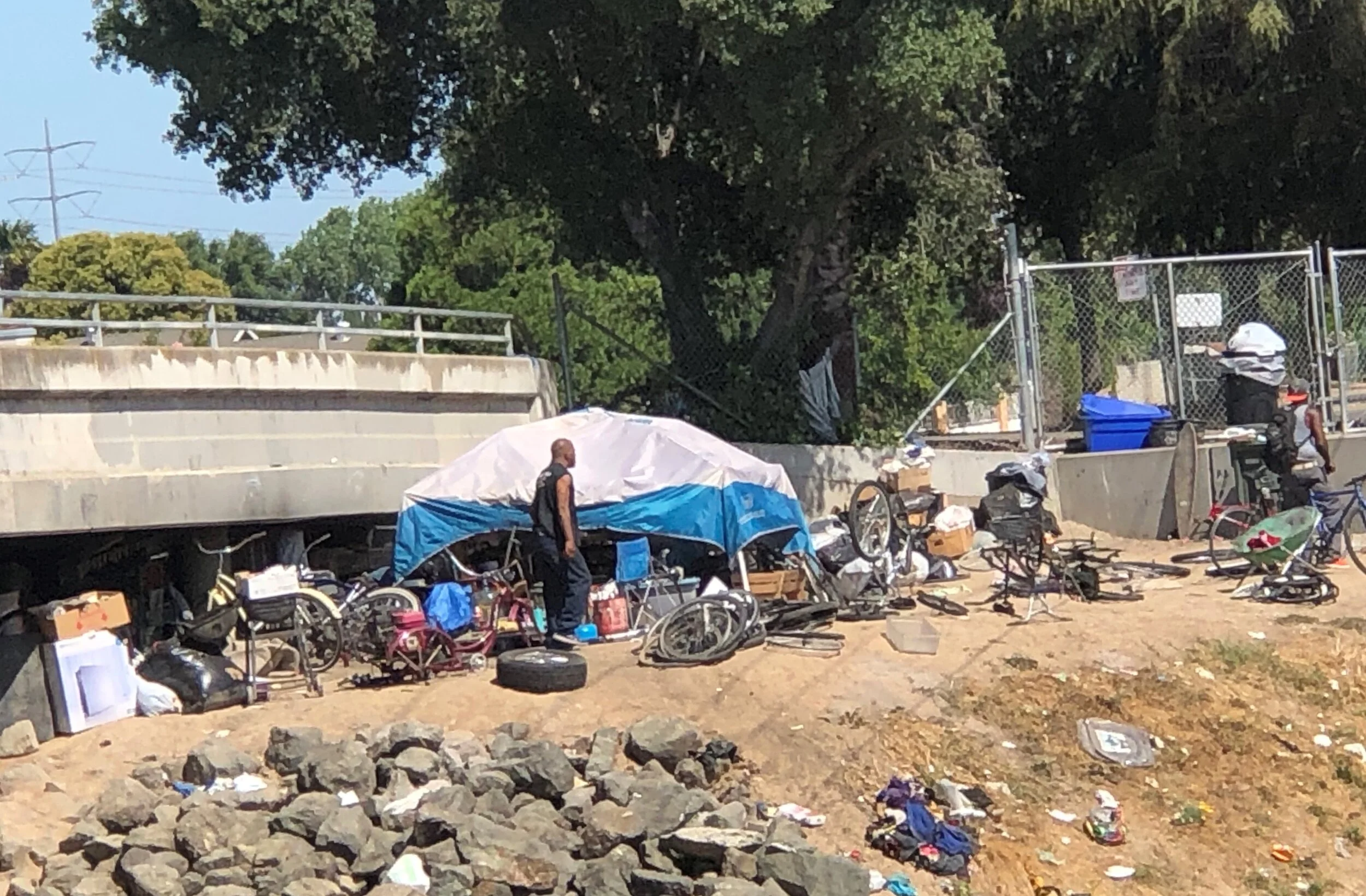LA court ruling echoes Mayor Steinberg's call for legal mandate to house homeless
Homeless encampment in south Sacramento
A federal judge in Los Angeles Friday affirmed the idea that governments have a legal responsibility to bring people indoors. Declaring that those living outdoors near freeways are exposed to an unacceptable level of health risk, he ordered the city to develop a plan in the next week to relocate 6,000-7,000 people.
The injunction came in response to a March lawsuit filed by the LA Alliance for Human Rights.
It's the same concept that I argued for statewide as co-chair of Gov. Newsom's Council of Regional Homeless Advisors, and which my fellow Council members endorsed. And it’s the essence of AB 3269, a bill by Assemblymember David Chiu, D-San Francisco, that I am sponsoring. It's time to establish a legally enforceable mandate that requires governments across California made a demonstrable difference in reducing the number of people living on the streets.
The fundamental premise of all these efforts is that alleviating homelessness should not be optional. This is what California needs.
Here is what Judge Carter had to say in his injunction:
“As the record has developed in this case, the Court has become increasingly concerned that a particular subset of individuals experiencing homelessness—those who live under freeway overpasses and underpasses, and near entrance and exit ramps—are exposed to severely heightened public health risks as a result of where they live. Indeed, all parties in this action agree that it is unreasonably dangerous for humans to live in areas that may, for example, be contaminated with lead or other carcinogenic substances.1 However, as with many issues involving individuals experiencing homelessness, no party appears to be addressing this problem with any urgency.”
He went on to cite this passage from the California Welfare and Institutions Code:
Every county and every city and county shall relieve and support all incompetent, poor, indigent persons, and those incapacitated by age, disease, or accident, lawfully resident therein, when such persons are not supported and relieved by their relatives or friends, by their own means, or by state hospitals or other state or private institutions.



